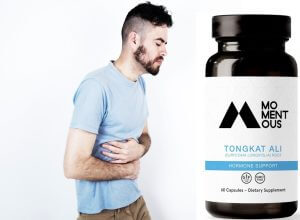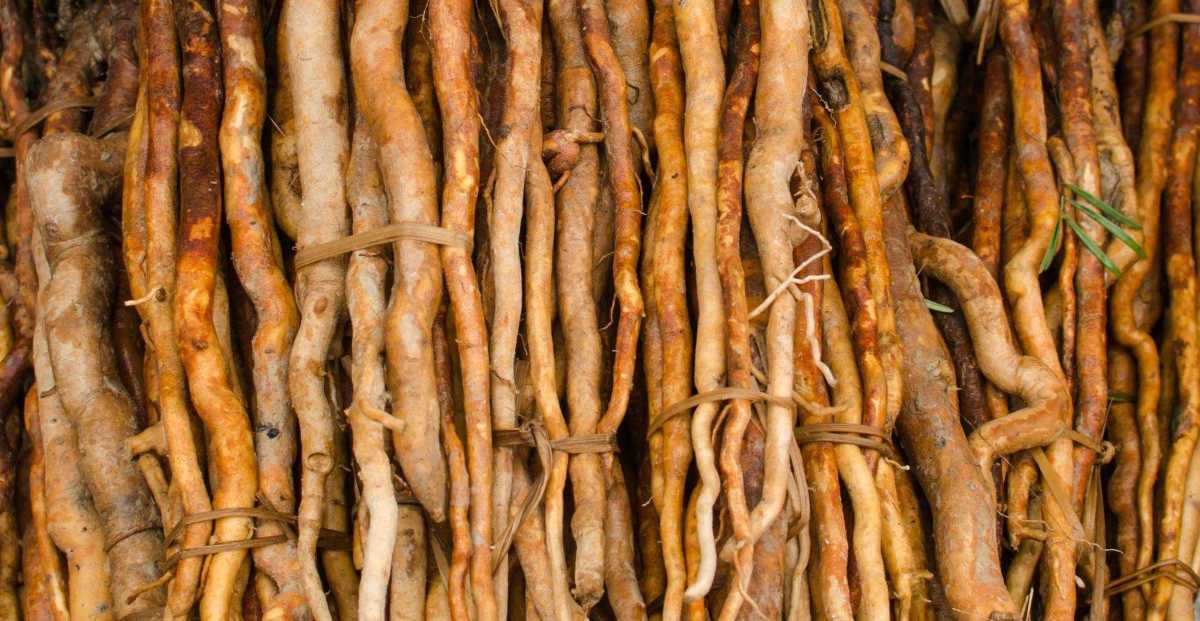

Most Tongkat Ali supplements are sourced from Tongkat Ali extracts that are produced in Malaysia or Indonesia. In fact, Malaysia and Indonesia produce 90% of the world’s Tongkat Ali.
Dr. Andrew Huberman once mentioned Indonesian Tongkat Ali is “better” during his podcast with Joe Rogan. As he did not elaborate, this begs an answer to the following question:
Between Malaysia and Indonesian Tongkat Ali, which is better?
This article compares Malaysian vs. Indonesian Tongkat Ali extracts and all other information you need to know when evaluating Indonesian and Malaysian Tongkat Ali supplements. Our guide will help you decide which country produces the best Tongkat Ali by ironing out the facts on both Malaysian and Indonesian Tongkat Ali.
Indonesia and Malaysia are two major countries that export Tongkat Ali extracts on a large scale to countries such as US, UK, China, Europe and Australia.
Tongkat Ali’s was first documented by William Jack (a botanist) during his visit to Malaysia in 1822 and his trip changed the world. Whilst you are buying mostly Indonesian or Malaysian Tongkat Ali, this herb may also be bought in smaller quantities in Vietnam and Thailand.
So which is the best country to source for quality Tongkat Ali?
Let’s bring head-to-head comparisons between Malaysian and Indonesian Tongkat Ali to find the winner in this battle of two giants.
There are five things to consider when buying either Indonesian or Malaysian Tongkat Ali:
Lets deep-dive into Malaysian and Indonesian Tongkat Ali based on quality standards, potency, benefits, research and development and cost.
Malaysian Tongkat Ali extracts have higher quality and safety standards than Indonesian Tongkat Ali. Most Malaysian Tongkat Ali extracts adhere to the Malaysian Tongkat Ali Standards MS2409. set by the authorities and standards agency.
In fact, Malaysia is the first and possibly the only country that publish a Tongkat Ali extraction standards which was jointly developed by the Ministry of Science & Technology, Ministry of Health, Forest Research Institute and the private sector in 2011.
Whilst Malaysian Tongkat Ali extracts are standardized according to the MS2409 standards, Indonesian Tongkat Ali extracts are mostly non-standardized, making it less potent due to the inconsistent bioavability from Tongkat Ali for every batch of production.
Our verdict:
No country can match Malaysian Tongkat Ali quality standards; from harvesting technique to extraction standard protocols due to its Government-approved Tongkat Ali standardization framework.
Malaysian Tongkat Ali are reported to have higher potency due to higher eurycomanone between 1.5% to 3% found in mature Tongkat Ali plants in the region of Pahang and Johor.
The level of potency from Tongkat Ali roots has a small variation between plants and the bioactive consistency makes Malaysian Tongkat Ali perform better than Indonesian Tongkat Ali.
On the other hand, Indonesia is reported to have higher eurycomanone found in Black Tongkat Ali. However, the potency of Indonesian Tongkat Ali is uncertain due to the extraction protocol.
In reality, an accurate measure of Tongkat Ali’s potency lies on its pharmacological effects on health when subjected to human clinical tests.
An example of a potent Malaysian Tongkat Ali extract is Physta®, which recorded more than 26 clinical tests on humans with positive results since 2003.
Our verdict:
If you are searching for a potent Tongkat Ali with a consistent level of bioactive ingredients for each production batch, Malaysian Tongkat Ali is the answer.
Malaysian Tongkat Ali recorded more clinical tests and research activities by global scientists compared to Indonesian Tongkat Ali. This makes Malaysian Tongkat Ali extracts generally more trustworthy by researchers, health and medical professional community.
In fact, Malaysia is the first country that took a bold step in commercializing Tongkat Ali with MIT back in 2003 under the Government-funded Malaysia-MIT Biotech partnership. This gave birth to new technology for Tongkat Ali identification and extraction in Malaysia led by Professor Dr. J Sinskey and Cho Kyun Rha from MIT.
MIT-formulated Tongkat Ali is now used as a natural testosterone booster for men around the world.
Malaysian Tongkat Ali attracted more scientific research compared to Indonesian Tongkat Ali. Some of the global scientists involved in the research on Malaysian Tongkat Ali since 2000s include:
Our verdict:
If R&D and herbal extraction technology matter to you, Malaysian Tongkat Ali offers better quality compared to Indonesian Tongkat Ali.
You will get more health benefits if you are consuming Malaysian Tongkat Ali compared to Indonesia. This is true if you are buying clinically tested Tongkat Ali extract from Malaysia that performs better than generic lab-tested Tongkat Ali extract from Indonesia.
Malaysian Tongkat Ali is known to deliver a wider range of benefits, and not limited to testosterone increase, but other benefits such as libido, improved mood, immunity and significant boost of energy and stamina.
Due to increasing human clinical tests on Malaysian Tongkat Ali extract, the positive test results from published studies showed greater confidence of scientists using Malaysian Tongkat Ali in their studies.
On that note, Malaysian Tongkat Ali is more potent than Indonesian Tongkat Ali due to the higher clinical tests and studies that were performed on Malaysian-produced Tongkat Ali extract by scientists around the world.
Our verdict:
Malaysian Tongkat Ali containing standardized hot water extract offers a wider range of health benefits with faster gains compared to Indonesian Tongkat Ali extract.
Yes, the cheapest country to buy Tongkat Ali is Indonesia. Indonesian Tongkat Ali is generally more affordable and better priced compared to Malaysian Tongkat Ali due to lower production costs, low wages and lack of standardization or quality control.
Cheap Tongkat Ali roots and extract are common in Kalimantan, Indonesia rather than in Malaysia due to lower minimum wage in Indonesia, with an average wage of IDR 2,747,561 or USD 183 per month.
You may buy Indonesian Tongkat Ali powder in bulk discounts from Kalimantan or China suppliers to make your own formulation.
Most Indonesian Tongkat Ali root are exported for China for extraction without any stringent quality control and lower production cost of Tongkat Ali is attractive to buyers and businesses.
Our verdict:
Nothing beats Indonesian Tongkat Ali when it comes to price. The most affordable and cheapest Tongkat Ali is from Indonesia.
Leading UK functional health expert AJ Brookes said that Malaysian Tongkat Ali is highly preferred amongst health coaches, nutritionists and the fitness community due to the high potency of quality harvesting techniques, extraction process and compliance with international manufacturing standards.
AJ added that handpicked Tongkat Ali from mature roots is by far the most authentic Tongkat Ali you could buy and that can only be found in Malaysia’s 100 million year old rainforests.

Get the right answers on Malaysian and Indonesian Tongkat Ali to guide your purchasing decision.
Yellow, Red and Black Tongkat Ali plants are three different species that are naturally found in the rainforests of Malaysia and Indonesia.
Huberman-owned Momentous brand uses a generic Indonesian Tongkat Ali extract, which is less potent compared to the superior standardized Malaysian Tongkat Ali hot water extract that is clinically tested with more than 26 clinical trials.
Generally, Malaysian Tongkat Ali brands have a stronger reputation for being more potent than Indonesian Tongkat Ali due to its clinically tested extracts that went through decades of research and refinements. Malaysian Tongkat Ali is rich in history, and technological advancements and has been approved as traditional medicine by the Ministry of Health.
Both countries offer distinct Tongkat Ali extracts to suit your budget. Discerning herbal enthusiasts and functional health coaches prefer Malaysian Tongkat Ali due to high quality manufacturing standards, extraction technology and dedication to research compared to Indonesian Tongkat Ali.
Yes, you can take both Tongkat Ali from Malaysia and Indonesia at the same time but in low doses. To avoid any unwanted side effects from possible contaminants or impurities, it is recommended to stop for one week before switching to either Malaysian or Indonesian Tongkat Ali.
Malaysia is reported as the market leader for high-quality Tongkat Ali extracts compared to Indonesia due to its robust ecosystem of research and development, quality manufacturing standards, sustainable harvesting techniques and Government-funded initiatives. Malaysia’s sovereign-owned wealth fund and the Government have invested heavily in Tongkat Ali research with MIT including the standardization of Malaysian Tongkat Ali standards (MS2409), making it the top country in the world that produces quality Tongkat Ali extracts.
Yes Indonesian Tongkat Ali is generally safe to use but in small doses (between 100mg to 400mg) and short term (between two to 4 weeks). Long term use of Indonesian Tongkat Ali and the effects on liver or kidney has not been established or reported in any studies.
In comparison, Malaysian Tongkat Ali is safer as various toxicology studies were performed on Malaysian Tongkat Ali extract in the last 10 years. There are no reported kidney or liver failure from taking Malaysian Tongkat Ali as per the results of the toxicology tests.
There are more side effects of using Indonesian Tongkat Ali including mild to severe nausea, stomach upset, vomiting, heart palpitations compared to taking Malaysian Tongkat Ali. This is due to side effects from adulterants, contaminants, or impurities that exist in Indonesian Tongkat Ali extract, which are largely caused by quality extraction and soil quality from nearby mining sites known for their high mercury and arsenic levels.
Indonesian Tongkat Ali is relatively cheaper compared to Malaysian Tongkat Ali due to the low cost of manufacturing from using low-quality extraction technologies such as ethanol-based extract. This gives Indonesian Tongkat Ali a bad reputation for producing less potent extract that may not work on testosterone and other health benefits.
Between two major Tongkat Ali exporting countries (i.e Indonesia and Malaysia), Malaysian Tongkat Ali is highly recommended for its quality pharmaceutical-grade extract that is backed by decades of clinical tests using the most advanced extraction technology that guarantees higher potency and safety for long term use.
However, for those who are on a tight budget and want to seek a cheaper alternative Tongkat Ali experience, you’d be better off buying Indonesian Tongkat Ali.
Ask our experts which country produces the best Tongkat Ali and why.

Naressa Khan contributes regularly on AKARALI and is part of the global Tongkat Ali research team. As a writer and journalist, Naressa specializes in nutrition, health supplements, and natural wellness. With this approach always in mind, she explores fact-based and scientific evidence of topics related to health, herbs and natural wellness.
Our articles are third party reviewed by our panel of experts and medical advisors to ensure the facts are accurate and credible. These are validated against multiple source references which include but not limited to research studies, peer-reviewed journals, pre-clinical studies, clinical tests and other credible publications.
Our panel of medical advisors and experts are highly experienced in their individual fields. However, they do not provide any medical advice or recommendations arising from content published in this article.
Disclaimer: The content published in this article is for educational purposes and not intended to provide any form of recommendations, directly or indirectly to purchase or consume herbal supplements, drugs, medications, alternative remedies and practices or any brands mentioned in this article. By reading this, the sole responsibility and decision lies on the reader to make an informed decision based on publicly available information published on the internet. Any herbal supplements can be used as a health supplement, dietary plan or to treat illnesses. However, we encourage you to consult your nearest doctor before making any purchase from this website or any other websites or social platforms after reading this article. We do not hold any responsibility or accountability for any products purchased from this website or any third-party websites that are linked to this articles, sales channels or social platforms.